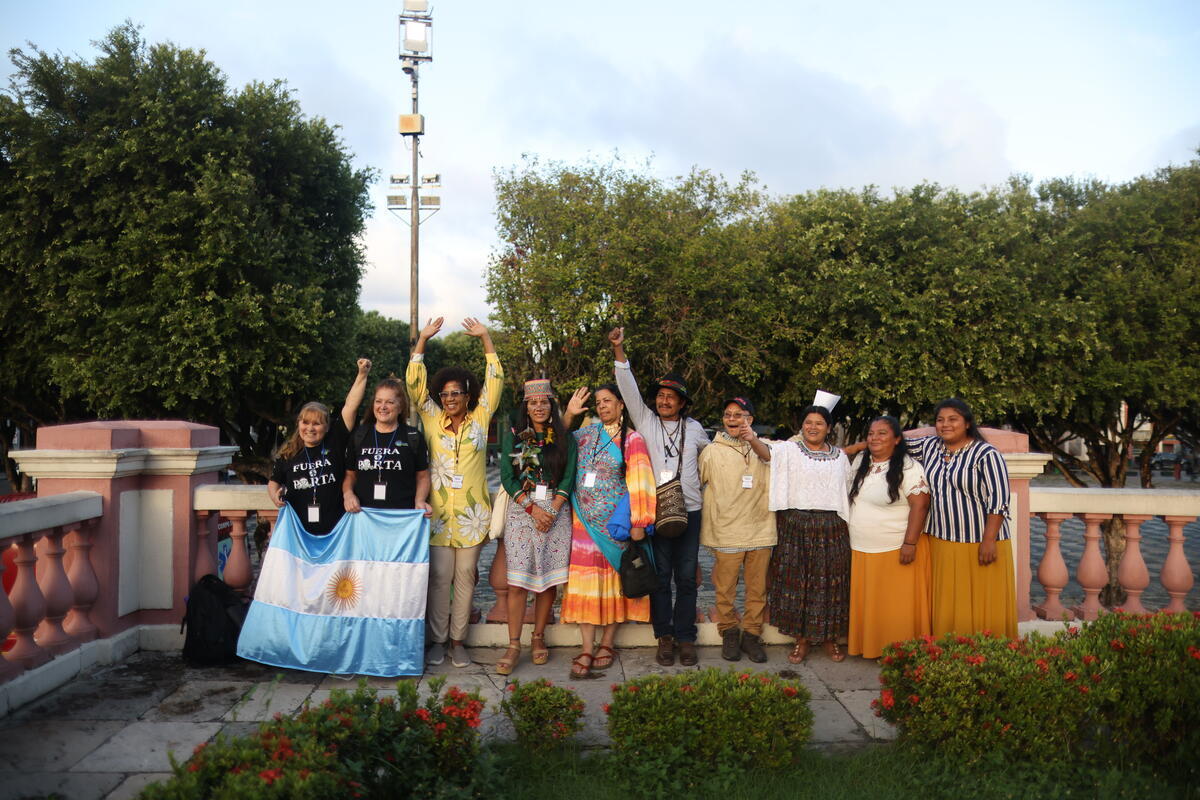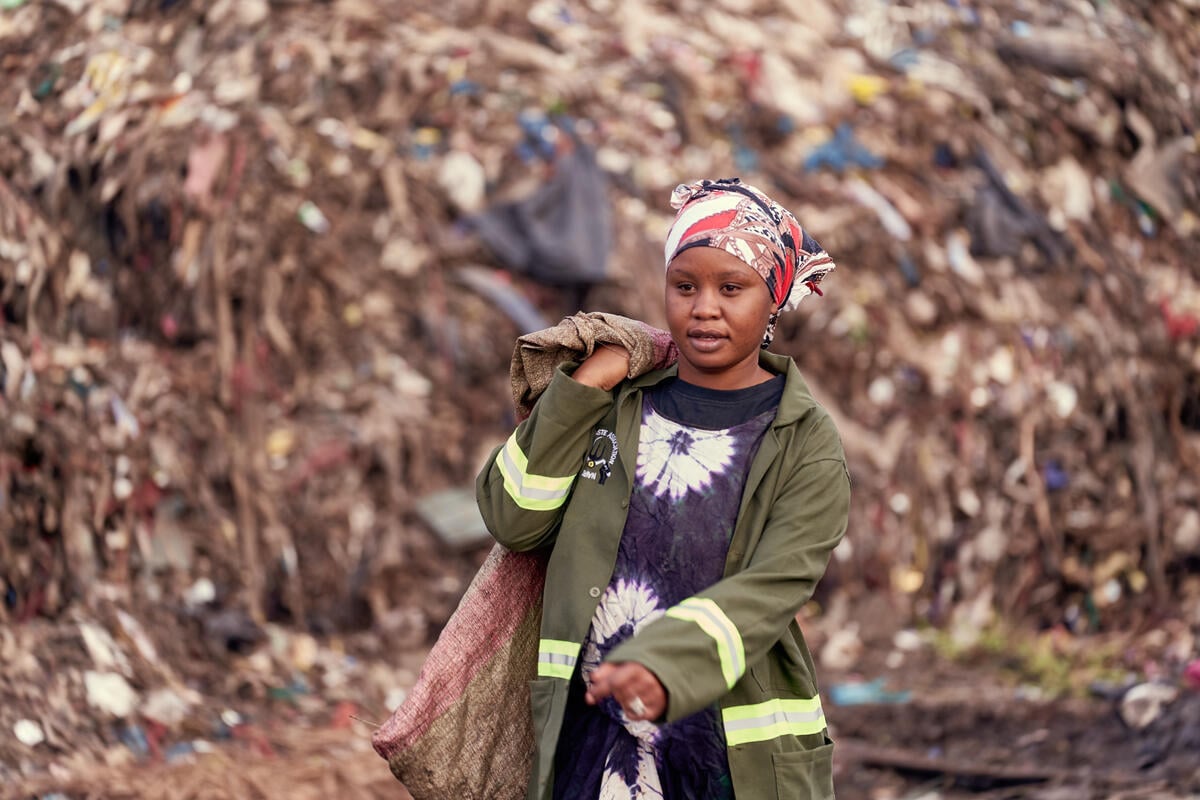Hamburg, 8 May 2017 – Compulsive fashion shoppers regularly overspend on new clothes in spite of not being able to use them, with post-shopping excitement often turning into guilt after less than a day. This is an international phenomenon that is spreading around the world, according to representative surveys commissioned by Greenpeace in China, Hong Kong, Taiwan, Italy and Germany between December 2016 and March 2017.[1] The research institutes asked people about their shopping behaviour, motivation and emotions around buying new clothes. The results are published in an international summary report before the start of the Copenhagen Fashion Summit, the world’s leading industry forum for sustainable fashion.[2]
“Our surveys show that binge shopping is followed by an emotional hangover – made of emptiness, guilt and shame. People start to realise they are trapped in an unsatisfying cycle of cheap, disposable fashion trends and that their overconsumption does not lead to lasting happiness. This should serve as a warning to companies and advertisers that promote the current fast fashion model. Fast fashion clothing brands should radically change their business model by shifting focus away from high volume production towards quality and durability,” said Kirsten Brodde, project lead of the Detox my Fashion campaign.
Some of the key findings:
- Overconsumption of clothes: Regularly buying too many clothes, shoes, bags and accessories is a widespread habit in all surveyed countries and regions. Especially striking in China and Hong Kong, but widespread also in Europe, a majority admit owning more clothes than they need (60% CHN, 60% GER, 51% IT, 68% HK, 54% TW). Many own brand new clothes with hangtags that have been never worn (51% CHN, 41% GER, 53% HK, 46% IT, 40% TW).
- Shopping for social and emotional reasons: People don’t shop because they need anything, but mostly for social and emotional reasons such as relieving stress, boosting self confidence, gaining status and recognition, the excitement of shopping or spending time with friends.
- Excessive and compulsive shopping behaviour: A significant percentage of people qualify as “excessive shoppers” who show traits of compulsive shopping behaviour. People reveal they buy more than they can afford (46% CHN, 24% GER/IT, 42% HK, 29% TW). A third feel empty, bored or lost when they are not shopping (31% CHN, 14% GER, 37% HK, 24% TW) and around half of consumers admit that they are sometimes hiding/concealing their purchases from others out of fear of negative reactions (46% CHN, 14% GER, 43% IT, 50% HK/TW). Online shopping is done even during classes or work (67% CHN, 16% GER, 63% HK, 35% IT, 55% TW).
- Shopping satisfaction is short-lived: Around two thirds of shoppers feel satisfied or excited after buying fashion (67% CHN, 39 % GER, 76% HK, 63% IT, 67% TW), but a majority says this excitement wears off after a day or less (48% CHN, 65% GER, 59% HK, 65 % IT, 55% TW). A third say they feel even emptier after shopping excitement fades away (37% CHN, 35% HK, 33% IT, 31% TW)/
- Browsing social media triggers people’s desire to shop (72% CHN, 23% GER, 63% HK, 36% IT, 55% TW). Other major triggers to shop are peer pressure, celebrity endorsements, sales promotions such as “Buy 1, get 1” or limited editions.
“In today’s broken fashion system, companies spend billions of ad dollars to sell us false dreams of happiness, beauty and connection tied to shopping products. But we would be much happier if fashion labels provided clothes that are high quality, durable companions for life, and offered support for customers to care, share and repair our clothes. We and the planet deserve nothing less,” said Kirsten Brodde, project lead Detox my Fashion.
About the Detox my Fashion Campaign:
With its Detox campaign, Greenpeace has been fighting successfully for a cleaner textile industry, committing 79 global textile brands and suppliers to ban hazardous chemicals from their supply chain by 2020. However, to protect our planet and our health around the globe we need to go a step further. We need to change the way we consume clothing and tackle consumption habits, unsustainable lifestyles and seek for happiness in places other than shopping malls.[3]
ENDS
Infographics and Press Images: here
Full report: here
Notes:
[1] Surveys commissioned by Greenpeace East Asia (for Hong Kong, Taiwan and China), Greenpeace Italy and Greenpeace Germany with independent market research institutes. All surveys are representative and were carried out between late 2016 and early 2017 amongst at least 1000 people aged 20 to 45 per country and region in China, Hong Kong, Taiwan, Italy and Germany.
[2] After the Binge, the Hangover
[3] Detox – Catwalk
Media contacts:
International and Germany: Lu Yen Roloff, Communications Lead, Greenpeace Germany, [email protected], +49 151 100 28 26 7
China: Zhang Xuan, Communications officer, Greenpeace China, [email protected], +861065546931
Hong Kong: Ray Yeung, Communications officer, Greenpeace Hong Kong, [email protected], +8520096095714
Taiwan: May Liu, Communications officer, Greenpeace Taiwan, [email protected], +886911987043
Italy: Gabriele Salari, Communications officer, Greenpeace Italy, [email protected], +393425532207



